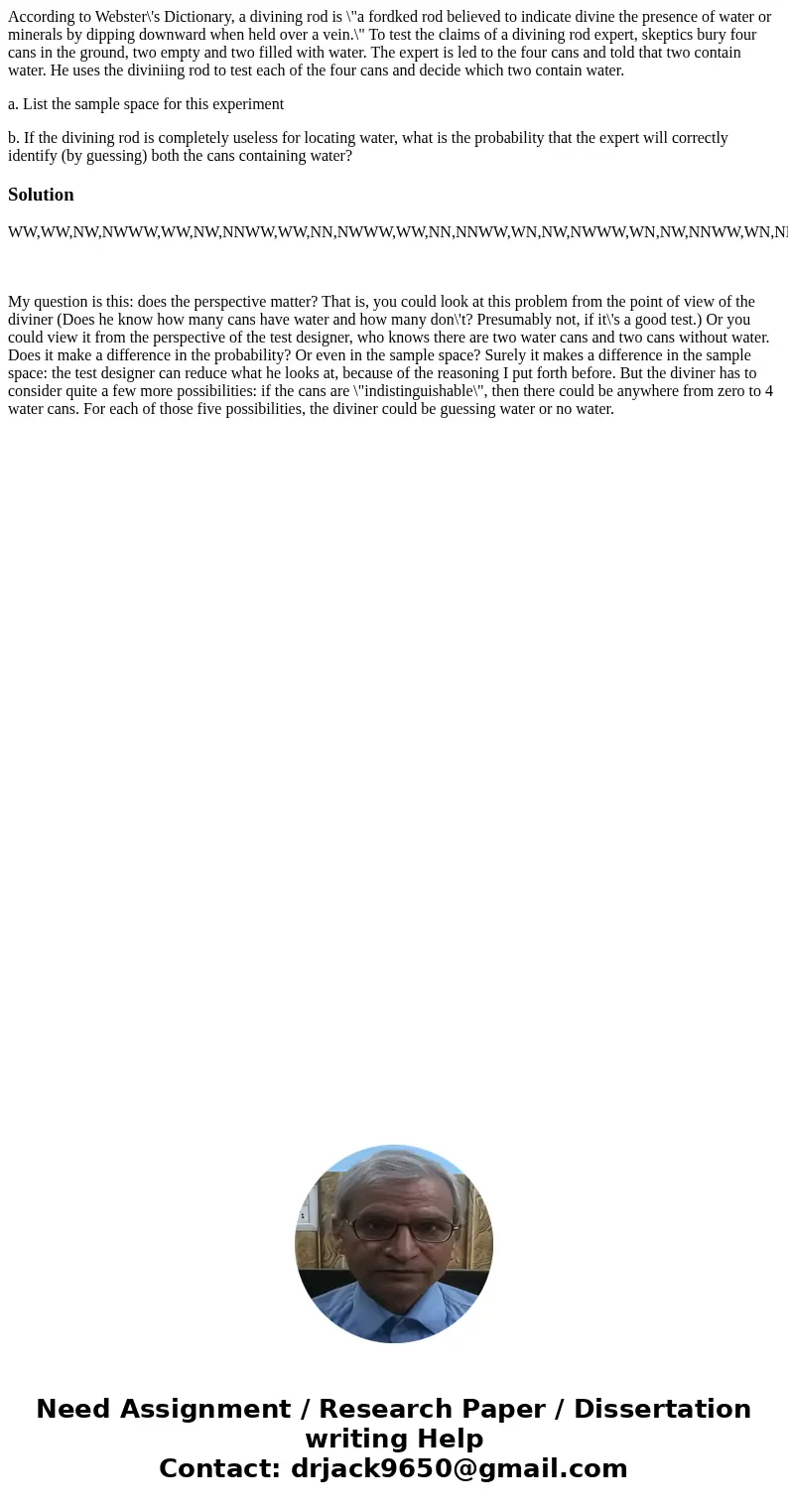According to Websters Dictionary a divining rod is a fordked
According to Webster\'s Dictionary, a divining rod is \"a fordked rod believed to indicate divine the presence of water or minerals by dipping downward when held over a vein.\" To test the claims of a divining rod expert, skeptics bury four cans in the ground, two empty and two filled with water. The expert is led to the four cans and told that two contain water. He uses the diviniing rod to test each of the four cans and decide which two contain water.
a. List the sample space for this experiment
b. If the divining rod is completely useless for locating water, what is the probability that the expert will correctly identify (by guessing) both the cans containing water?
Solution
WW,WW,NW,NWWW,WW,NW,NNWW,WW,NN,NWWW,WW,NN,NNWW,WN,NW,NWWW,WN,NW,NNWW,WN,NN,NWWW,WN,NN,NNWN,WW,NW,NWWN,WW,NW,NNWN,WW,NN,NWWN,WW,NN,NNWN,WN,NW,NWWN,WN,NW,NNWN,WN,NN,NWWN,WN,NN,NN.
My question is this: does the perspective matter? That is, you could look at this problem from the point of view of the diviner (Does he know how many cans have water and how many don\'t? Presumably not, if it\'s a good test.) Or you could view it from the perspective of the test designer, who knows there are two water cans and two cans without water. Does it make a difference in the probability? Or even in the sample space? Surely it makes a difference in the sample space: the test designer can reduce what he looks at, because of the reasoning I put forth before. But the diviner has to consider quite a few more possibilities: if the cans are \"indistinguishable\", then there could be anywhere from zero to 4 water cans. For each of those five possibilities, the diviner could be guessing water or no water.

 Homework Sourse
Homework Sourse